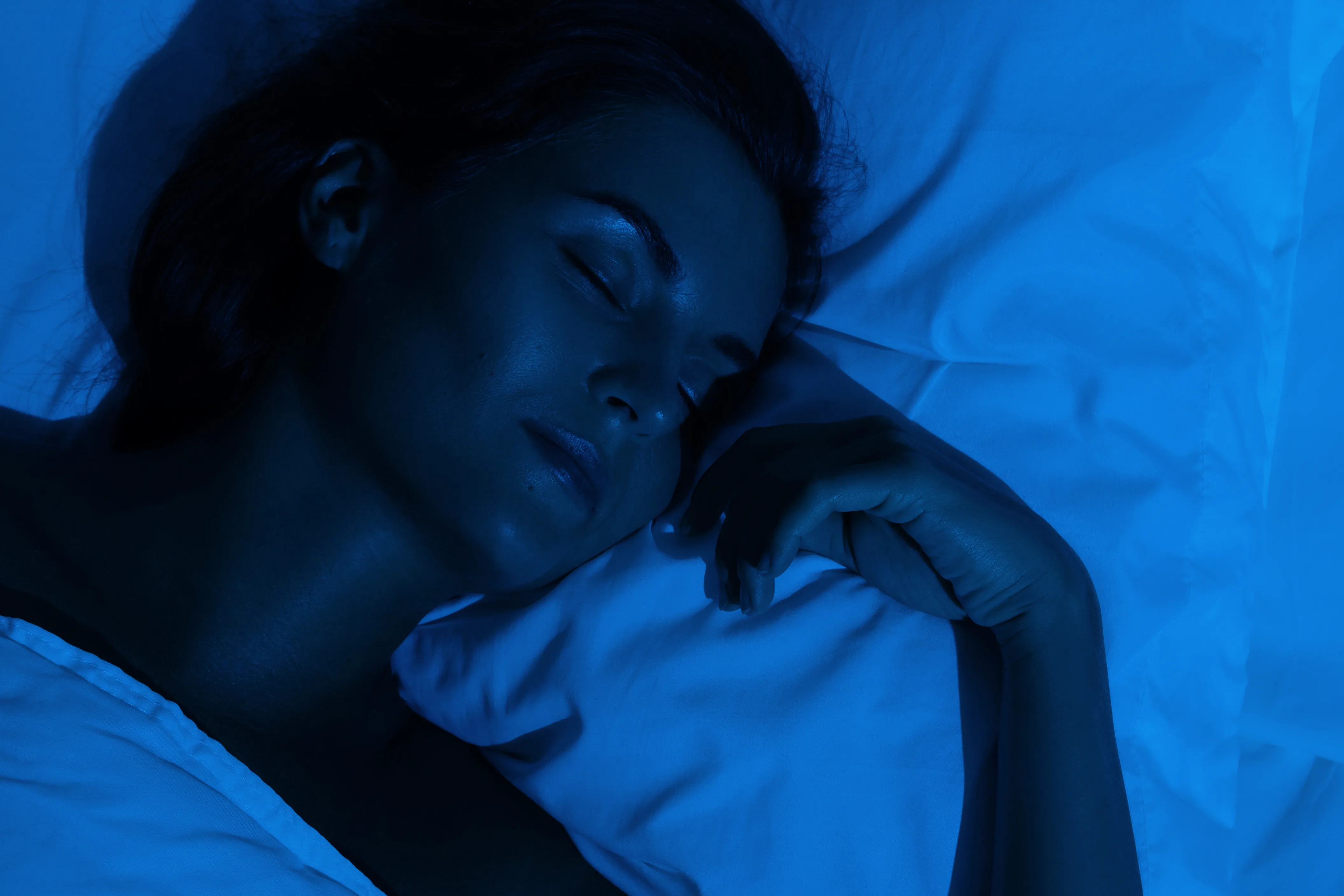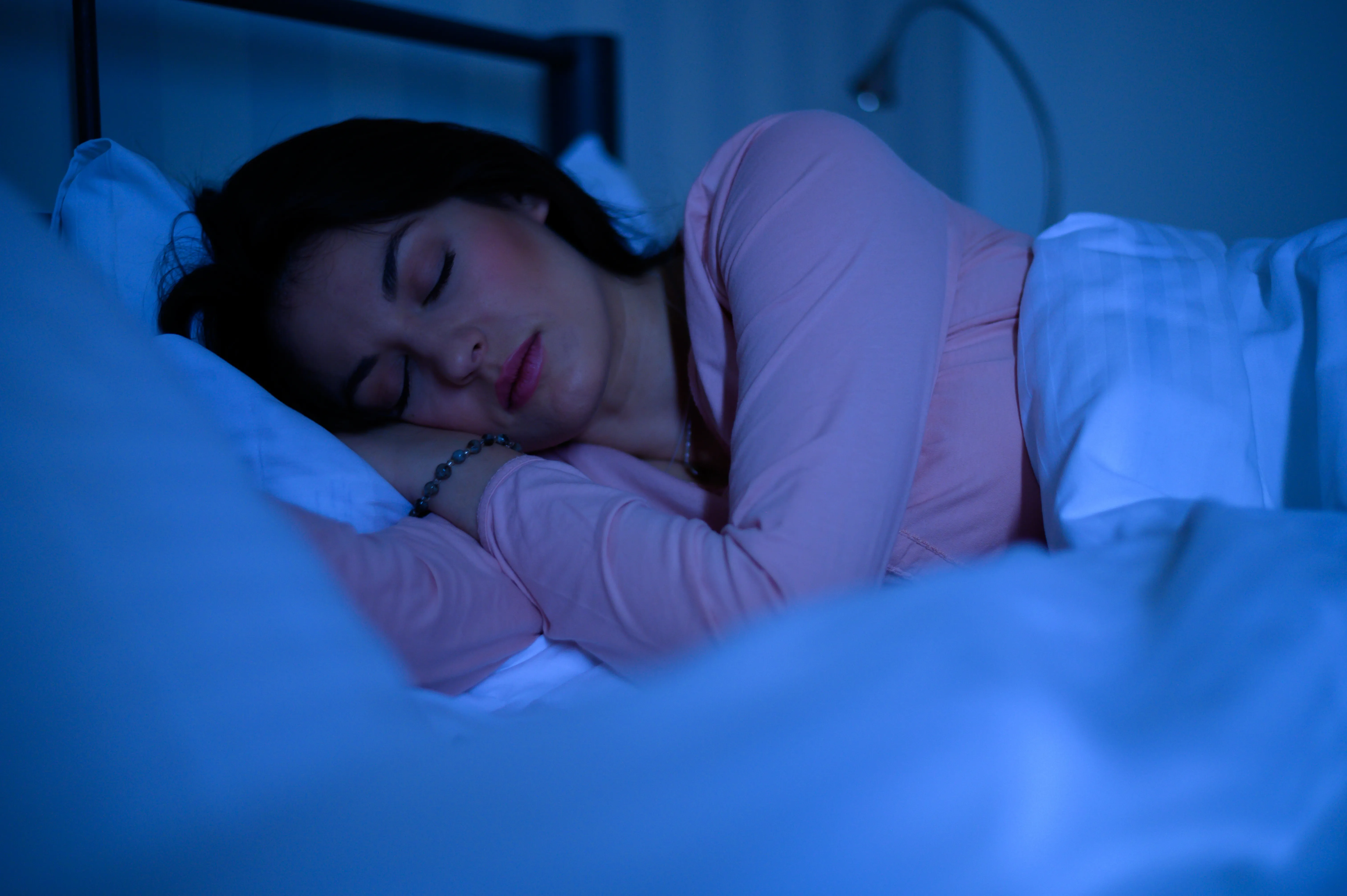A lot of women notice changes in their sleep during hormonal shifts, whether it is menopause, pregnancy, or even just part of their menstrual cycle. While estrogen often gets most of the attention, there is another hormone that plays a key role and is often overlooked: progesterone.
Most people know progesterone as being part of reproduction, but it also has a calming effect on the brain that can directly affect sleep. Because hormones have an impact on sleep as well as on physical health, understanding progesterone’s role can offer deeper insight into what is really behind those restless nights.
In this article, we will take a look at what progesterone does, the forms in which it exists, how it might impact your sleep, and whether it could be a helpful option for improving your rest.
What Is Progesterone?

Progesterone plays an important role in the female body. It is made mostly by the ovaries after ovulation and helps manage the menstrual cycle. If pregnancy occurs, it supports the uterine lining, and the placenta makes more of it during pregnancy.
Though often tied to fertility, progesterone does more than that. It affects the brain too, helping with mood, lowering anxiety, and making sleep easier. For example, its interaction with other reproductive hormones like estrogen plays a role in conditions such as sleep apnea and sleep-disordered breathing. These effects make progesterone important not just for physical health but for emotional balance as well.
Progesterone and Female Sleep Cycles
Hormones like progesterone shift throughout the menstrual cycle. After ovulation, during the luteal phase, progesterone goes up, and around that time, many women notice they feel more tired or at ease. This is especially true for women in perimenopause, when menopausal symptoms and hormone fluctuations start to appear.
One reason might be that progesterone supports GABA, a chemical in the brain that helps the body settle down and get ready for sleep, reducing anxiety and nighttime arousals. It is also closely tied to reproductive hormones, and fluctuations in those levels may trigger sleep disturbances.
The luteal phase is an important time when sleep may get better or worse, depending on how strongly a person reacts to changes in hormone levels.
But right before a period, progesterone drops. And when that happens, sleep can be harder to come by. Some women feel more anxious, have trouble falling asleep, or wake up during the night. This pattern also shows up later in life. During menopause, when progesterone stays low, sleep problems like night sweats, restlessness, or frequent wake-ups become more common.
So, even though progesterone is usually linked to reproduction, it has a real impact on sleep, too. When progesterone levels change, sleep patterns often change as well.
Additional Uses and Medical Relevance
Although progesterone is mostly known for its role in reproduction, it also has other medical uses. It plays a part in treatments related to hormone balance, and in some cases, it can even help with sleep disturbances or sleep-wake disorders caused by shifts in reproductive hormones.
- Menopausal Hormone Therapy: After menopause, some women take a mix of estrogen and progesterone. Estrogen can help with symptoms, but when taken alone, it might cause the uterine lining to build up too much. That can raise the risk of certain health issues. Progesterone is added to balance things out. For some women, it also helps with night sweats, trouble sleeping, and hot flashes. Estrogen plays a complementary role in sleep regulation, often working alongside progesterone to support rest and reduce sleep disturbances.
- Contraception: Some forms of birth control use lab-made progesterone, called progestin. You will find it in pills, shots, implants, and IUDs. It works in a few ways, mainly by stopping ovulation and making it harder for sperm to reach the egg.
- Fertility Treatments: In IVF and other assisted fertility treatments, progesterone is often prescribed to help the uterus get ready for a fertilized egg. Low levels during early pregnancy may increase the risk of miscarriage, so doctors sometimes use supplements to give extra support.
- Gender-Affirming Care: In gender-affirming care, some transgender women add progesterone to their hormone plan. It is not used by everyone, but some people feel it helps with breast development or emotional changes.
Sources and Forms of Progesterone
Before using progesterone for sleep, fertility, or hormone support, it helps to understand the different types and how each one works.
The way it is made and taken can make a big difference in how it affects the body. Some forms may be better for sleep, while others are more commonly used for hormonal or reproductive treatments.
Natural vs Synthetic
Progesterone comes in two primary forms: bioidentical (or natural) and synthetic. They both have different effects on the body.
- Natural Progesterone: The chemical composition of this type matches exactly with the progesterone produced by your body. Manufacturers typically create this progesterone from plant sources, like wild yams or soy, to use in hormone replacement therapy or fertility treatments. Many people experience fewer side effects from this hormone because it closely resembles the body's natural hormone.
- Progestins: These synthetic hormones function like progesterone but possess a different molecular structure. Both birth control pills and certain hormone therapies contain these synthetic substances. The distinct way these substances interact with the body leads to varied effects and elevates the risk of side effects for certain individuals.
Administration Methods
The way progesterone is delivered can change how well it works and what it works best for.
- Oral (By Mouth): Micronized progesterone pills are often used in hormone therapy and some fertility treatments. Since they go through the liver first, they create byproducts that may cause drowsiness. For some, this helps with sleep.
- Topical Creams: These are applied to the skin and are usually sold as natural options. However, absorption can be inconsistent, and they are not approved by the FDA for full hormone therapy. Results can vary a lot from person to person.
- Vaginal: These include gels, suppositories, or tablets. They are commonly used in fertility care, especially to support early pregnancy. This method allows direct absorption with fewer full-body side effects.
- Injections: Given as intramuscular shots, this form is often used in IVF and other assisted reproduction treatments. It is effective but can be painful or uncomfortable and must be given by a medical professional.
How Progesterone Affects Sleep

Progesterone is often considered a reproductive hormone, but it also controls the way the brain and nervous system react to stress, relaxation, and sleep. When levels are balanced and healthy, many people find it easier to fall asleep, stay asleep, and feel more rested, especially if sleep problems or sleep disorders are related to hormone fluctuations.
Progesterone’s Calming Effects
Progesterone works with the nervous system in a way that helps the body relax, physically and mentally.
- GABA Receptor Stimulation: A major impact comes from the interaction between progesterone and GABA brain receptors. Multiple anxiety medications target these specific receptors. The activation of brain receptors by progesterone slows down neural activity, which allows the body to move into a relaxed state suitable for sleep. Hormones like progesterone can also influence your circadian rhythm, affecting when you feel alert or sleepy. When this rhythm is disrupted, it may contribute to sleep disturbances that interfere with rest and recovery.
- Oral Progesterone Metabolism: When taken by mouth, progesterone goes through the liver and turns into substances that have calming and sleep-promoting effects, like allopregnanolone. These are known to help with deeper, more stable sleep, particularly REM sleep. That effect is mostly seen with oral forms, not creams or vaginal products.
- “Nature’s Valium” Effect: Because of how it calms the nervous system, some have nicknamed oral progesterone “Nature’s Valium.” It is known to reduce racing thoughts, ease anxiety, and help people settle down, three things that can get in the way of falling asleep.
Impact on Sleep Quality
Elevated progesterone levels lead to better sleep patterns. When progesterone levels drop, sleep can suffer. This describes why women experience different sleep patterns throughout their menstrual cycle and major life changes such as pregnancy and menopause.
- Sleep Onset and Maintenance: Higher progesterone levels may shorten the time it takes to fall asleep, sleep latency, and lead to fewer wakeups during the night. It also seems to support deeper, more restorative sleep stages, including non-REM sleep and REM sleep, which are both essential for memory and mood regulation. Progesterone may also enhance sleep spindles, brief bursts of brain activity that play a key role in memory consolidation and sensory processing during sleep.
- High-Progesterone Phases: During the luteal phase (the second half of the menstrual cycle) or early pregnancy, progesterone is naturally higher. Many women say they feel sleepier or notice better sleep quality and longer sleep duration during these phases, which shows how closely linked this hormone is to rest.
Effects on Sleep Disorders
Progesterone can play a helpful role in managing sleep problems tied to hormonal changes. Progesterone may ease symptoms in certain sleep disorders, especially those that become more common during menopause or other hormonal shifts, by helping to rebalance the body’s natural hormone levels. This can have an impact on the nervous system and the regulation of sleep.
- Sleep Apnea: In postmenopausal women, progesterone may help with sleep apnea by improving how the brain controls breathing and keeping the airway more stable during sleep. This effect has not been considered clearly in other groups, but it shows promise.
- Insomnia During Menopause: As progesterone levels fall during menopause, chronic insomnia, early waking, and poor sleep quality often follow. Taking oral progesterone as part of hormone therapy may help by bringing back some of its natural calming effects. Progesterone may be especially helpful in managing insomnia that stems from hormonal fluctuations and contributes to sleep disturbances during menopause or other life transitions.
- Night Sweats: When hormones drop, the body can have a harder time managing temperature. Night sweats are a common result, and they can seriously disturb sleep. Supporting hormone balance, including with progesterone, may help reduce how often these happen and how intense they feel.
Risks and Side Effects of Progesterone
While many people tolerate progesterone well, especially bioidentical hormones, it can have side effects or interact with other medical conditions. It is better to be aware of the risks if you plan to use it for an extended period of time, particularly to aid in sleep.
Common Side Effects
Not everyone experiences side effects, but some people notice changes when they start taking progesterone or adjust their dose. Here are a few that tend to come up most often:
- Mood Changes: Because progesterone affects brain chemistry, some people feel more emotionally sensitive, irritable, or moody, especially in the early days. These changes often settle down over time. But if you already deal with anxiety or depression, it is something to watch for and talk through with your doctor.
- Breast Tenderness and Bloating: Some people notice bloating, swelling, or a heavy feeling in the belly, similar to premenstrual symptoms. Breast tenderness is also fairly common. These effects usually happen due to shifts in fluid balance and hormone activity.
- Fatigue: When taken at night to support sleep, progesterone can sometimes lead to next-morning fatigue. Some people feel groggy or overly sedated, especially when using oral forms. Taking it earlier in the evening or adjusting the dose may help, though responses can vary from person to person.
- Headaches or Dizziness: Some people get headaches or feel dizzy when they first start taking hormones. Staying hydrated, sleeping well, and checking in with your provider can go a long way if that happens.
Contraindications and Cautions
Progesterone is not suitable for everyone. In some cases, it could raise health risks or make certain conditions worse. If you are considering it, especially for long-term use, here are a few situations where caution matters.
- Avoid in Hormone-Sensitive Cancers: If you have had breast, ovarian, or uterine cancer, especially types that respond to hormones, progesterone may not be safe. Sometimes, doctors still use it under careful supervision, but that decision usually comes from a specialist.
- Medical Interaction: Progesterone can change how other medications work. This includes blood thinners, steroids, anti-seizure drugs, and other hormone-based treatments. When mixed with the wrong meds, it can increase side effects or affect how your body processes certain medications.
- Liver Dysfunction: Oral forms of progesterone are broken down by the liver. If you have liver conditions like hepatitis or cirrhosis, your body might not handle it well. In this case, a different delivery method or another type of treatment may be better.
- Clotting Disorders: Hormone therapy, especially in higher doses or synthetic forms, can raise the risk of blood clots. If you or someone in your family has dealt with things like deep vein thrombosis, pulmonary embolism, or clotting conditions like Factor V Leiden, it is important to talk with your doctor first and go through a full review before starting progesterone.
How to Use Progesterone for Sleep Support

Progesterone may be helpful for people whose sleep problems are linked to hormonal changes. This includes women in menopause, those with irregular cycles, and individuals undergoing hormone or fertility treatment. But the timing, method, and monitoring can affect its sleep benefits.
Preferred Methods of Administration
The form of progesterone you take matters. Some versions are more effective for sleep than others, and they don't all work the same way.
- Oral Progesterone: This is considered the most effective option for improving sleep. When taken by mouth, progesterone is processed by the liver and turned into compounds that activate calming receptors in the brain. These are the same receptors that anti-anxiety medications act on. This effect can help you fall asleep more easily and stay asleep through the night. Oral capsules are usually taken in the evening and are often included in hormone replacement plans.
- Transdermal and Vaginal Formulations: These versions may support hormone balance or fertility goals, but they do not create the same calming effect. Because they do not go through the liver in the same way, they do not produce the sleep-promoting compounds that oral forms do. These are better suited for regulating the menstrual cycle or helping with implantation during fertility treatment.
Timing and Dosage Considerations
When and how much you take matters. Timing progesterone correctly can make a clear difference in how well it supports sleep.
- Evening Administration: It is usually recommended to take progesterone one to two hours before going to bed. This gives the calming compounds time to reach their peak as your body begins winding down, which can help reduce mental activity and support relaxation.
- Individualized Dosing: The dose depends on many things, including your age, your hormone levels, and how severe your sleep issues are. A common starting dose is between 100 and 300 milligrams of oral micronized progesterone at night. Some people may need a lower or higher amount over time. It is important not to self-prescribe. A medical provider should help determine what is best for you.
Monitoring and Follow-Up
Hormones affect everyone differently, so checking in and adjusting the plan is important.
- Clinical Monitoring: Regular follow-ups allow your provider to see how you are responding. They may check your hormone levels, ask how well you are sleeping, and assess whether any side effects are showing up. These visits help decide whether the treatment is working.
- Therapy Adjustments: If progesterone is not improving sleep or is causing side effects, changes can be made. That may include adjusting the dose, trying a different form, or switching the timing. In some cases, adding other treatments like melatonin or estrogen may help, but this should always be done with medical guidance.
When to Talk to Your Doctor
Talk to your doctor before using progesterone for sleep. Even though some people may benefit from it, this is not something to try on your own. Sleep problems that stick around or seem tied to hormones should be looked at more closely by a medical professional.
A provider can help you decide whether progesterone is the right option and how to approach it in a safe, thoughtful way.
Indications for Medical Consultation
While some sleep issues are temporary, others are more persistent. If your sleep is often affected or seems to follow a pattern in your life cycle, talk to your provider.
- Persistent Sleep Disturbances: Difficulty falling asleep, staying asleep, or waking up much earlier than usual can all be signs that something deeper is happening. If this has been happening for more than a couple of weeks, it may be linked to hormonal or other internal changes that should be checked. In some cases, a doctor may recommend polysomnography to rule out underlying conditions such as sleep apnea or other disruptions.
- Menopausal or Menstrual Symptoms: Hot flashes, mood swings, irregular periods, and night sweats often point to shifting hormone levels. If these symptoms are affecting your sleep, your doctor may explore whether hormone therapy, including progesterone, could make a difference.
- Suspected Hormonal Imbalance: Feeling tired all the time, anxious, gaining or losing weight unexpectedly, or noticing changes in your menstrual cycle can all be related to hormone disruptions. If these show up along with poor sleep, your provider may want to run some tests and see what is happening.
What to Discuss During Your Visit
Doctors can make better decisions when they understand what you are taking and what your health history looks like. This helps them decide whether progesterone is the right choice.
- Current Medications and Supplements: Provide a detailed list of all medications, vitamins, and supplements you are currently using. Certain drugs, including sleep aids, birth control, or antidepressants, may influence hormone levels or interact with progesterone. Sharing this information allows your provider to identify possible conflicts or safety concerns.
- Reproductive and Medical History: Let your doctor know about any past health issues that could be important. This might include liver disease, blood clotting disorders, hormone-sensitive conditions, or past pregnancies. If you have had surgery, such as a hysterectomy, it is worth mentioning. Even older medical events can influence how progesterone should be used.
- Diagnostic Options: In some situations, your provider may recommend blood tests to check hormone levels. This can include progesterone, estrogen, cortisol, or other related markers. If your sleep feels inconsistent, disrupted, or marked by frequent sleep disturbances, especially when it seems tied to hormone shifts, tests like polysomnography or hormone panels may help clarify the cause. The results can help explain what might be behind your sleep problems and point toward the best treatment approach.
FAQs
Can progesterone help me sleep?
Yes, particularly when insomnia is related to shifting hormone levels. Oral progesterone may support better sleep by calming the nervous system, which can help you fall asleep more easily and wake less during the night.
What are the side effects of taking progesterone at night?
Some people notice side effects such as dizziness, next-morning fatigue, mood shifts, or breast tenderness. Feeling very sleepy the day after is more likely with larger doses. These reactions can vary depending on how each person’s body handles the hormone.
Can I take progesterone for sleep without estrogen?
Progesterone can sometimes be used alone for sleep support, especially if estrogen is not advised. However, those with a uterus often need estrogen and progesterone to lower the risk of uterine lining thickening. Always check with your doctor before starting treatment.
What hormone helps you sleep at night?
While melatonin is the primary hormone that regulates sleep, progesterone also plays a role by helping the brain relax. When levels of progesterone or estrogen drop, such as before a period or during menopause, sleep can become lighter or more disrupted, especially in women.
Conclusion
Progesterone has a bigger role in sleep than most people think, especially for women going through hormonal changes like menopause, pregnancy, or irregular cycles. It helps calm the brain, affects sleep stages, and may even influence body temperature during the night.
Oral progesterone may help with sleep, but the effects are not the same for everyone. Things like hormone levels, general health, and how your body responds can all play a role. Consulting a doctor can help you find the best treatment.
If your sleep tends to change during certain points in your cycle or in response to major hormone shifts, that may not be a coincidence. Looking into how hormones affect sleep could be the first real step toward improving how well you rest and reducing recurring sleep disturbances.
Dom Abraham
As the lead content writer at Sleepiverse. Dom pours his heart into writing mattress reviews, bedding product reviews, and medically-reviewed health articles. Dom is from Portugal and likes to spend his free time writing on the beach as it gives him a sense of comfort. Aside from writing mattress reviews in front of the soothing beach view, Dom likes to experiment with new amazing food ideas.


